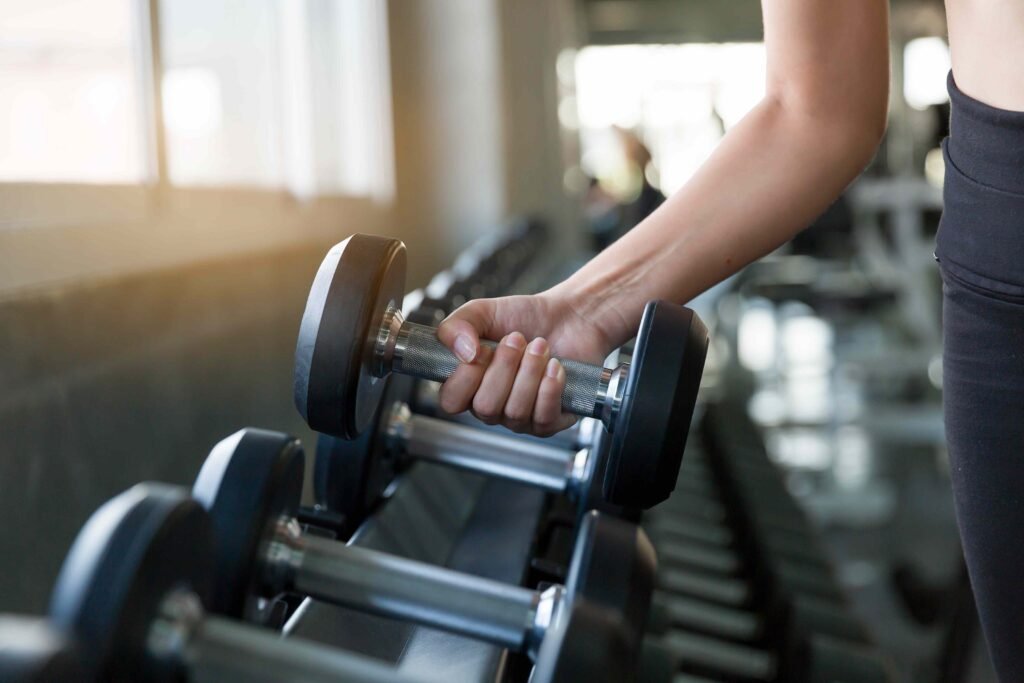Here at Health, we report on the influential research and trends that impact your everyday well-being. And this year, fitness has been on a roll.
Newly published studies on exercise have offered key findings on how to optimize your workout routine, from the best time of day to exercise to the number of sets you actually need to build muscle. Plus, viral social media videos are bringing trendy fitness tactics into the limelight.
Since we’re just over halfway through 2025, we’ve rounded up the best of what we’ve learned so far this year—our top 10 research-backed fitness tips—to help you strengthen your workouts.
A preprint review of 67 studies showed that people can build strength and grow muscle by increasing their number of sets, but only up to a point. In fact, strength gains plateaued after just two direct sets, which target a specific muscle.
This finding adds to increasing evidence that fewer sets of heavier weight can build strength over time. After a few hard sets, any more leads to minimal gains and far greater muscle fatigue and recovery time.
One study set out to answer the age-old debate of whether you should do cardio or weights first at the gym. Researchers split 45 men into different workout groups, and after three months of training, the men who lifted before doing cardio had better muscle power and endurance, as well as lower body fat.
The idea is that doing cardio first can drain your body’s energy, making it harder to give your full effort during strength training.
In a study of 42 people, weight lifting for an hour each week—or specifically, two 30-minute sessions—led to noticeable improvements in muscle size and strength after two months.
Building on previous research, the study shows you don’t need to live at the gym to become stronger, researchers said. The findings should encourage people to try strength training, which offers a host of benefits for your muscles, heart, and more.
A June study of over 4,200 middle-aged and older adults found that completing the sitting-rising test was a marker of longer lifespan and longevity.
The goal of the fitness test is to sit down and then stand back up using as little assistance (a hand or knee, for example) as possible. If you’re unable to complete the sitting-rising test, experts said that’s an indicator you may need to work on non-aerobic fitness, including balance, flexibility, muscle strength, or range of motion.
The time of day when you exercise can actually affect your health, an April study showed. After reviewing data from nearly 800 older adults, researchers found that those who were most active in the morning had better heart and lung function.
Experts think our bodies’ internal clock, known as the circadian rhythm, may explain this link. The study also noted that people who exercised at the same time each day had better overall health, too.
Any form of exercise is good for your brain, but in a large review of existing studies, researchers discovered that yoga, Tai Chi, and “exergames” (active video games, such as Dance Dance Revolution or Nintendo Wii Sports) may protect your brain most effectively.
Experts said the mind-body connection required for each of these activities makes them particularly helpful for brain health, especially when it comes to preserving cognition and memory.
A study published in July suggested doing workouts that match your personality may lead to better consistency and results. Researchers discovered that people preferred different workouts based on their “Big 5” personality traits (extraversion, neuroticism, conscientiousness, agreeability, openness).
For instance, extroverts tend to prefer high-intensity workouts with others, such as exercise classes and team sports, while more agreeable people enjoy longer, lower-intensity sessions.
After reviewing a year of data from 20,000 adults, researchers discovered that people who went to bed around 9 p.m. got up to 30 more minutes of physical activity the following day, as compared to people who went to bed around 1 a.m.
Interestingly, the results were more about bedtime than sleep time—people who got more than seven hours of shut-eye actually had lower levels of physical activity the next day. Experts recommended an earlier bedtime (with a standard amount of sleep) to maximize your movement the next day.
“Japanese Walking” is a method of interval training that blew up on social media in 2025—and it does actually have scientific backing. Older research shows that interval walking may lead to improvements in strength, peak exercise capacity, endurance, and blood pressure.
All you have to do is walk quickly for three minutes, then walk slowly for three minutes. For a full workout, repeat this pattern five times, reaching a total of 30 minutes.
A July study looked at 22 randomized controlled trials including over 1,300 people with insomnia. The researchers found that three exercise interventions—yoga, Tai Chi, and walking—helped people sleep more and lower their insomnia severity scores.
These exercises can all help prime your body for sleep: Tai Chi can encourage relaxation, walking may boost melatonin levels, and yoga may increase levels of a sleep-promoting neurotransmitter in the brain, experts said.

